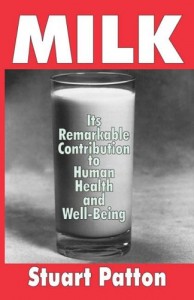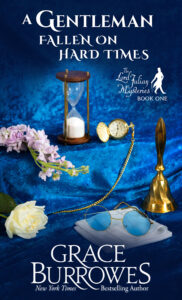 My dad was a great appreciator of what he called the elegant question. As a bench scientist, his work moved forward if he asked the right questions, and then tested his hypotheses in a precise and linear fashion. He was very interested in how correlation could shift to causation–how do you prove that light alters flavor compounds in milk, when it might be time making the difference, the nature of the container, exposure to air…?
My dad was a great appreciator of what he called the elegant question. As a bench scientist, his work moved forward if he asked the right questions, and then tested his hypotheses in a precise and linear fashion. He was very interested in how correlation could shift to causation–how do you prove that light alters flavor compounds in milk, when it might be time making the difference, the nature of the container, exposure to air…?
I am not the scientist my father was (see: flunked calculus twice), but I have come to appreciate the right question at the right time. Early in my writing career, I realized that most editors, though well intended, had seldom actually written a novel. Madam Editor might have a wonderful idea behind her voluminous suggested revisions, but if I didn’t grasp exactly what she was getting at, I’d be playing whack-a-mole. Make the hero more engaging, and his character arc flattens. Give the heroine more agency in the manner preferred by the editor, and she becomes not-credible for the time period.
And so on, for four rounds of revision that put the book right back where it was, while  making roadkill of the author’s joie de plume.
making roadkill of the author’s joie de plume.
So I learned to ask, particularly about revisions I didn’t agree with, “What is the problem we are trying to solve by making this change?” The answer was usually a few seconds of dead silence, and then either something constructive, or proof that my editor was off on some “heard it in a conference” tangent having nothing to do with the story I’d written.
I came across an even more powerful question in discussions with a younger friend whose spouse of ten years had developed a serious mental illness, and persisted in refusing treatment. Though the spouse was never violent, her affliction parted her from reality and in ways that made living with her unsafe. Spousal loyalty, honor, tenacity… many factors weighed against a divorce for my friend. He eventually stumbled onto this question: What would the woman I married, the wonderful lady of whom I thought the world, tell me to do?
 That wonderful lady, who had once upon a time loved truly and with her whole heart, would have counseled divorce. She would have wanted her husband to be safe and happy and away from the relentless despair and drama.
That wonderful lady, who had once upon a time loved truly and with her whole heart, would have counseled divorce. She would have wanted her husband to be safe and happy and away from the relentless despair and drama.
The bumper sticker questions might work for a lot of people: What would Jesus/Buddha/the Prophet do? Are you living your best life? James Clear’s newsletter always includes a question along the lines of: What’s one thing you can do today to make future you happier? A riding friend once told me that with financial matters, he always tried to wait 24 hours before making a decision, and if the situation did not allow him 24 hours, that in itself gave him reason to pause.
 Sleuths in mystery novels (waves to Lord Julian) are always supposed to ask: Who benefits from the commission of this crime? And when they answer that question correctly, they can often ditch some red herrings and false clues.
Sleuths in mystery novels (waves to Lord Julian) are always supposed to ask: Who benefits from the commission of this crime? And when they answer that question correctly, they can often ditch some red herrings and false clues.
In a world of 24-7 click bait news cycles, endless intrusive tech, and non-stop natural disasters, the breathing room to ask a good, timely question and wait for an authentic answer is hard to come by, but–I believe–of greater benefit than ever.
What’s a question that has stood you in good stead? One you might turn to without even realizing you go there instinctively?
Speaking of Lord Julian… his debut whodunit launched on Tuesday. One reader told me that her day was complete when she got an email: A Gentleman Fallen on Hard Times is ready to be picked up! (Don’t tell Hyperia.)







Oh, I LOVE this idea! “What is the problem we are trying to solve by making this change?”
I am also a big fan of James Clear and his newsletter with the What’s one thing you can do today to make future you happier? questions
Stopping to contemplate things with a sense of curiosity is ALWAYS the right answer
I think it’s “What if I do/don’t?” This is one of your questions that is twisting my brain up trying to explain (that’s a compliment and a complaint)! Variations are “can I live without it?” and “what difference will it make in 6 months/a year/5 years?” It took me many years to get to the point of stopping to think about things but maturity has brought some additional wisdom (at least I think it has). Hopefully this is a bit clearer than mud.
I find if I can verbalize or write the question down, I am often halfway to the answer.
Our daughter is a skookum lass. Her go-to question for physicians is now, “and how would your advice differ if I were skinny?” (Or she didn’t wear a 38K brassiere)
I think “What am I really mad at?” is an embarrassingly frequently useful question given the whole aging/wisdom assumption. Also “What am I trying to achieve and is that what I really want?” often leads me to better clarity.
I love the “How would your advice differ if I were X” brilliance of Marianne’s daughter. Medical setting of course, but there are many other scenarios where I think this would be an illuminating question.
I read Lord Julian in one big binge, so now I will wait a couple of weeks and go back to savor. Lovely story and I can hardly wait for the next one.
I try to ask myself if I need to do/say/be anything in a particular situation. I often feel that I have to direct the conversation or make sure nobody is mad or that everyone is heard, whatever. But sometimes I know I am sticking my own ego into things when it isn’t at all helpful. So I stop and withdraw and ask myself if I truly need to DO anything or if I am just showing off. I have a tendency to think I am the smartest person in the room. Another question I ask myself is “Is what I am contemplating necessary?” I would rather not do anything except sit and read, after all. And finally, since I often have to force myself to do something other than read, I ask “Will I be glad I did x y or z after I have done it?” like teaching my class, which is strictly a volunteer thing, or going to the gym, etc.
When a stranger does something I think is rude to me, I try to remember to ask myself, “I wonder what that person was thinking about just then?” If I imagine that person just got a call from a hospital about a family member, I let rudeness go. If I imagine that person saw me and thought, “I think I will cut in front of that person because I deserve to go first,” I will make myself furious, not because of what they did, but what I *made up* as the reason they did it. If you are thinking, “But you don’t *know* why that person did that,” my answer is, “Exactly!”
I concentrate on my options and brainstorm all possible responses and the consequences then pick the best one.
What are you doing?
Applies to corgis, husband and daughter.
“Could money fix this?”
Often the answer is “no.” But sometimes a little money will help a problem, or maybe what is needed is a lot, which would involve fundraising for some problem — sending someone on a mission trip, helping someone who has had to move out of an unsafe situation get household supplies, donating to disaster victims, helping a freshman in college. And sometimes money can’t help if what is needed is a sympathetic listener, a home-cooked meal, advice on homework.
I like everyone’s questions on this post, these are great!